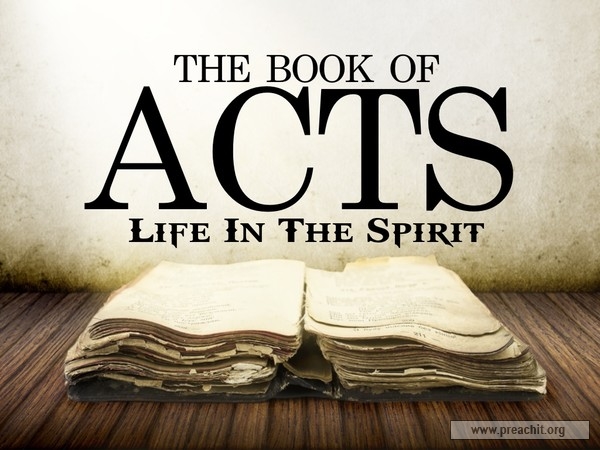ACTS 16
Bible Study Notes Rev. Betsy Perkins
Paul’s Second Missionary Journey
- Have you ever had the opportunity to mentor someone? What about mentoring someone in faith? How were you led to that relationship? Who are you mentoring now?
Timothy (16:1-5)
- On the map, trace Paul’s journey to Lystra. How did this trip to Lystra differ from the first?
- What do we learn about Timothy in this passage?
- What else do we learn about Timothy in Paul’s letters to Timothy? Read 1 Tim.4:12-14, 5:23; 2 Tim.1:2, 1:4-8
- Is Paul being inconsistent by circumcising Timothy while at the same time insisting that Gentiles do not need to be circumcised to be saved?
So Paul circumcised Timothy – not (I stress) because Timothy needed circumcision to become a full member of God’s people, but because it was going to be much easier to advance Paul’s mission if his companions were all able to be seen as proper Jews (Paul discusses this principle in 1 Corinthians 9:12,19-23.)… We sometimes think it would be nice of life were not complicated, but it is, and the complexities matter. They are part of God’s world and God’s work. N.T. Wright
Joe Boyd, Bible Experiment – Acts of the Apostles (RightNowMedia), 1:11:30 – 1:17:55
Where Next? (16:6-10):
- Locate on the map the places Paul and his companions tried to go but were blocked. How might the Spirit of Jesus communicated this to them? How do you imagine they were feeling during this time?
This must have been something of a testing time for all of them, with Paul and Silas establishing a partnership, and Timothy, as the younger colleague, getting to know them but wondering what on earth he had let himself in for. It’s one thing to trust God’s guidance when it’s actually quite obvious what to do next. It’s something else entirely when you seem to be going on and on up a blind alley. N.T. Wright
- Have you ever faced a time of testing when God’s guidance not clear? What did you do?
- How do they finally determine where to go next? Where is that on the map?
- Notice the word ‘we’ in verse 16:10. What do you think it means?
To Philippi (16:11-15):
- Why do you think Paul breaks with his previous pattern of going first to the synagogue when he arrives in a new place?
- What do we learn about Lydia in this passage?
- How did she come to believe in Jesus?
Preaching and Prison (16:16-24):
- What is going on with the slave-woman who follows Paul and his companions as they walk through town? What is she saying about them?
- Why does Paul get annoyed? What does he do?
- Paul has challenged the pagan spiritual forces, but what are the other forces that come against him?
The combination of religion, money and politics is asking for trouble, and Paul and Silas got it. Stripped, flogged and jailed, they discovered what happens to those who challenge the powers of the world with the powers of the Name of Jesus. N.T. Wright
- How do you think Paul and Silas are feeling as they are imprisoned and put into the stocks?
Saved! (16:25-40):
- What are Paul and Silas doing in their prison cell? What happens next?
- What does the jailer mean when he asks what he must do to be saved? (hint: it is probably not how to go to heaven when he dies)
- What does Paul tell him he must do to be saved?
- How are Paul and Silas saved? How is the jailer saved? How is his household saved?
Luke wants us to realize something about the earthquake. God’s messengers are not protected from the sufferings that will come when their message challenges the easy, smug rule of political, economic or religious forces. But God is not mocked. Vindication will come. We would much prefer it if we could have the result without the process, the crown without the cross, but that is never the way in the kingdom of God, as Paul made clear to the people of Iconium and Antioch (14:22).
N.T. Wright
- What happens in the morning? Why is Paul not content with simply being released?
- How does vindication come for Paul in this situation?
When Paul stays still long enough for someone to accuse him of something, then it’s always the same: accusations, threats, violence, intimidation and then vindication, whether by public statement of the authorities or by simple escape. What happens in Philippi puts down a marker. This is how it’s going to be. But that isn’t a cause for gloom. It is a reason for celebration. The night-time feast in the jailer’s house sets the pattern for the bizarre celebration of God’s kingdom from that day to this. The world is turning the right way up at last, and what better way of showing it than a Roman jailer throwing a midnight party for two battered but rejoicing heralds of King Jesus?
N.T. Wright
- Can you think of other instances of God’s vindication?
In light of this passage and our discussion, what one truth about God and about yourself stand out as something to “take to heart” this week?
Are there steps you will take, by God’s grace, to more fully apply it to your life?
Resources: NIV Zondervan Study Bible, 2015
N.T. Wright, Acts for Everyone, Part 1 2008
Max Lucado, Life Lessons from Acts: Christ’s Church in the World, 2018
Joe Boyd, Bible Experiment – The Acts of the Apostles (RightNowMedia), 2014


Add Your Comment